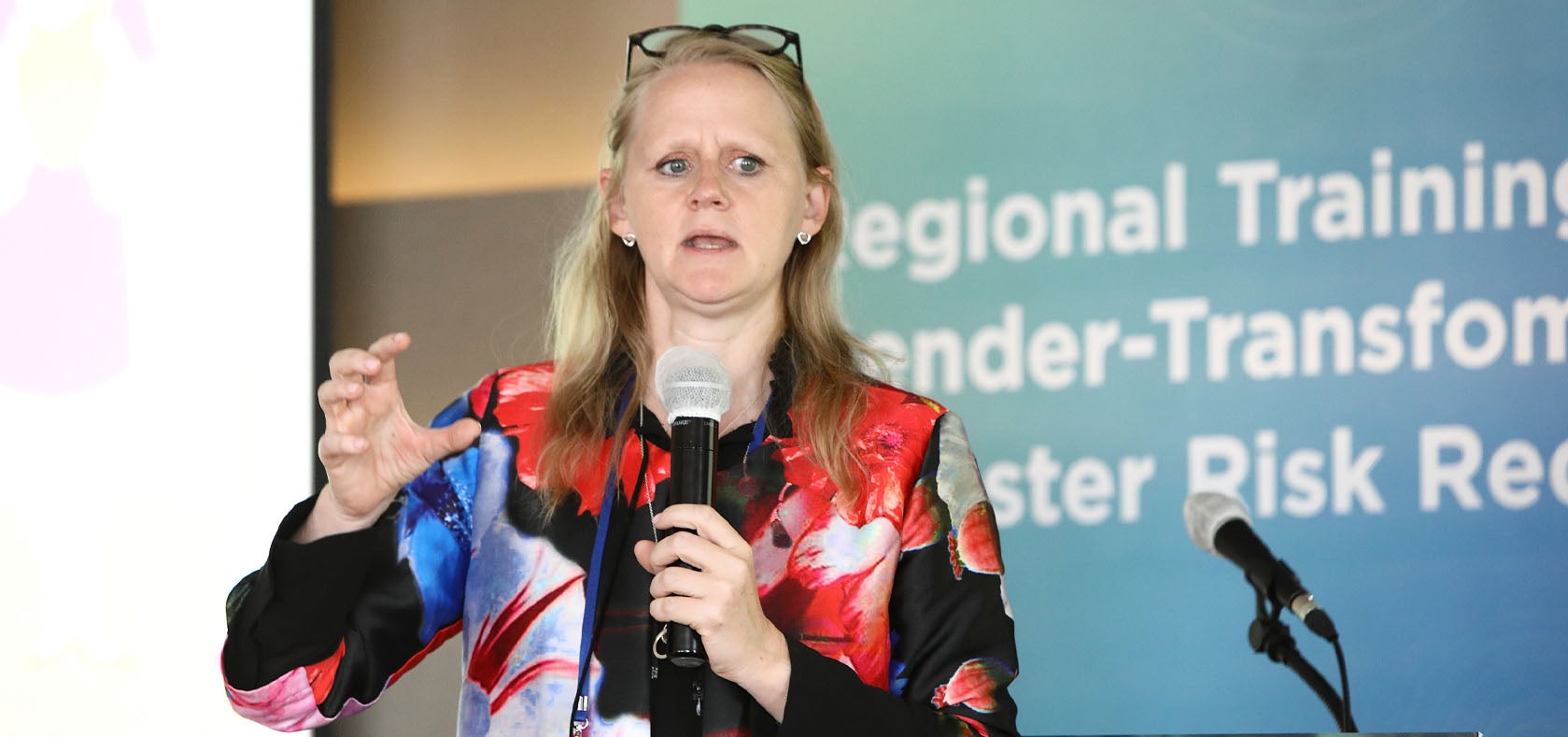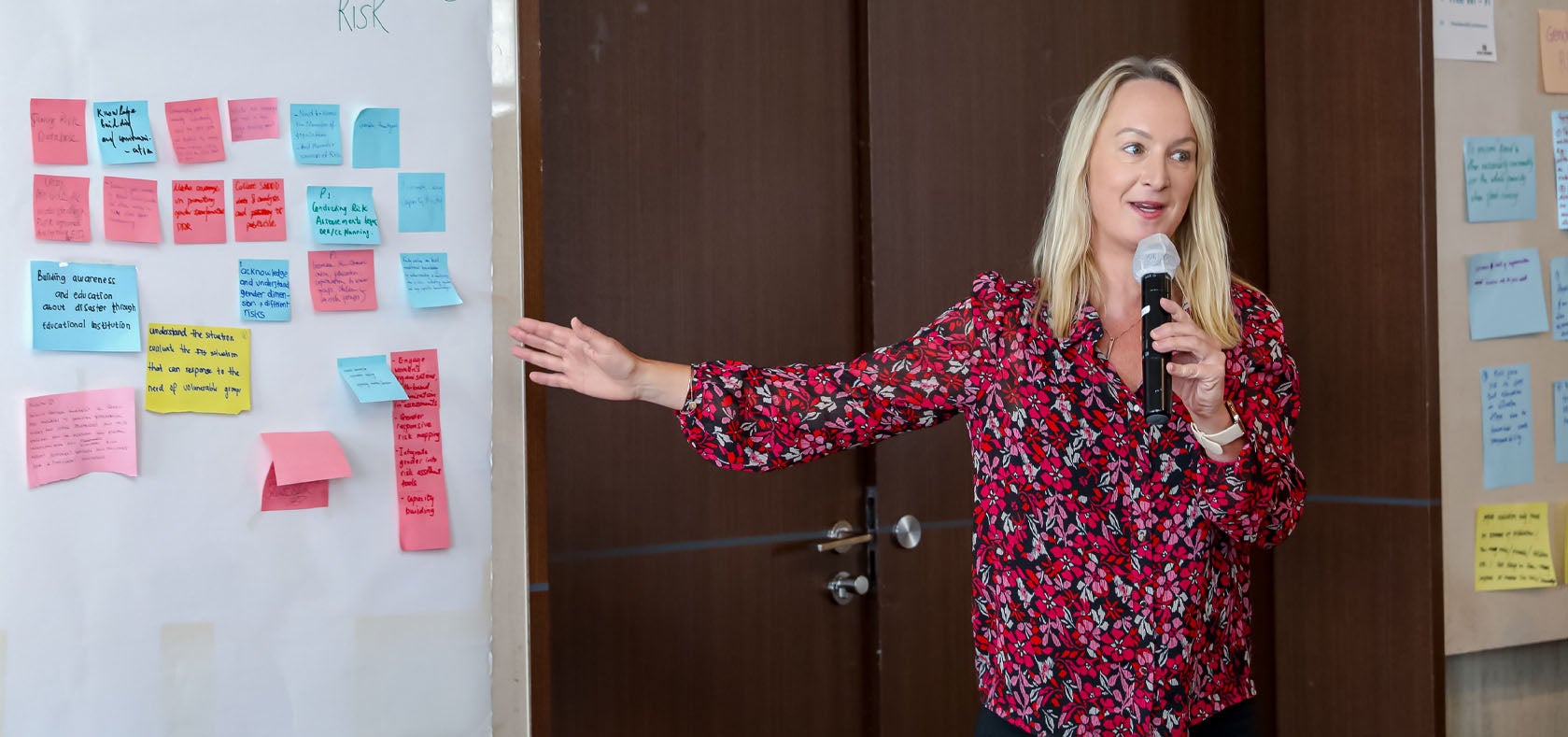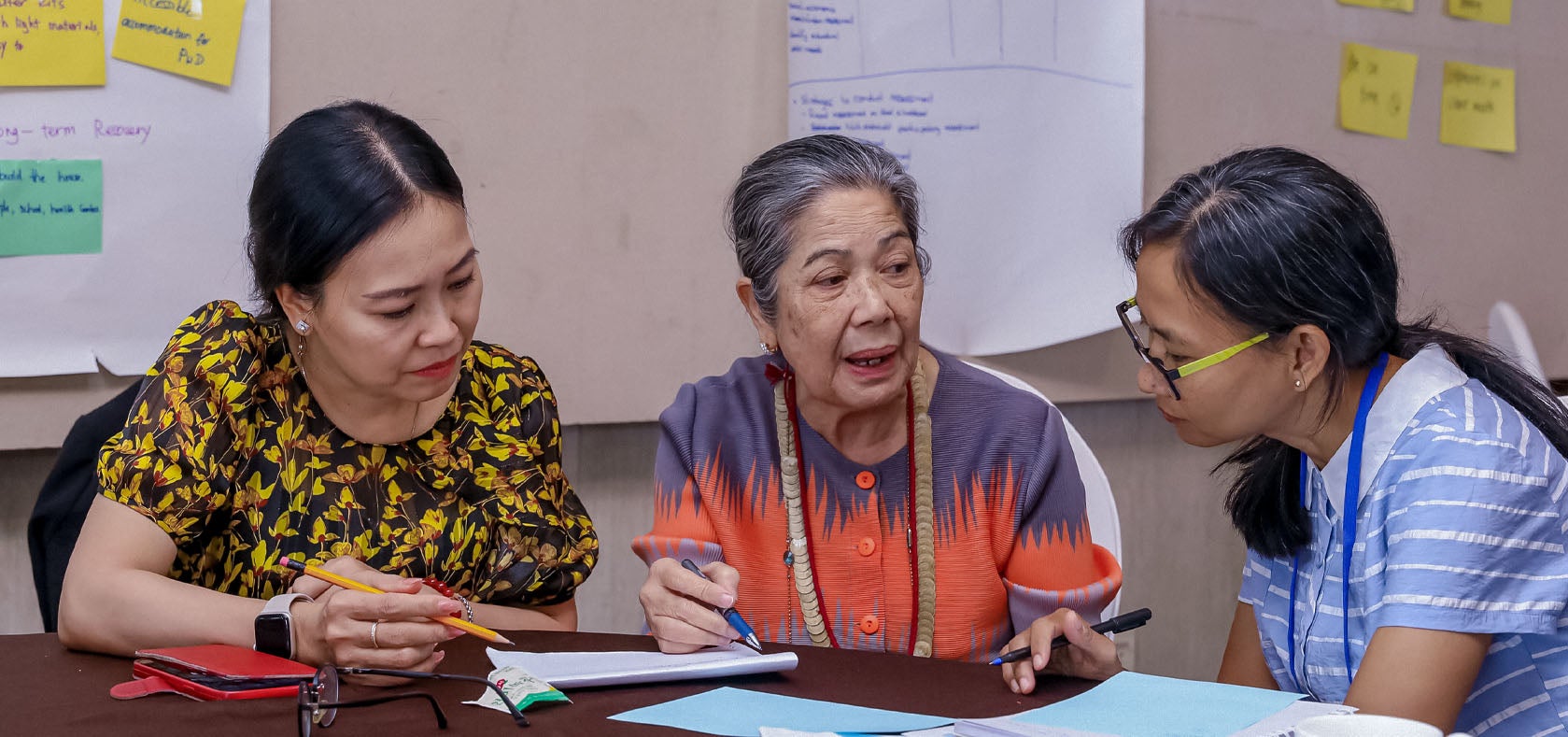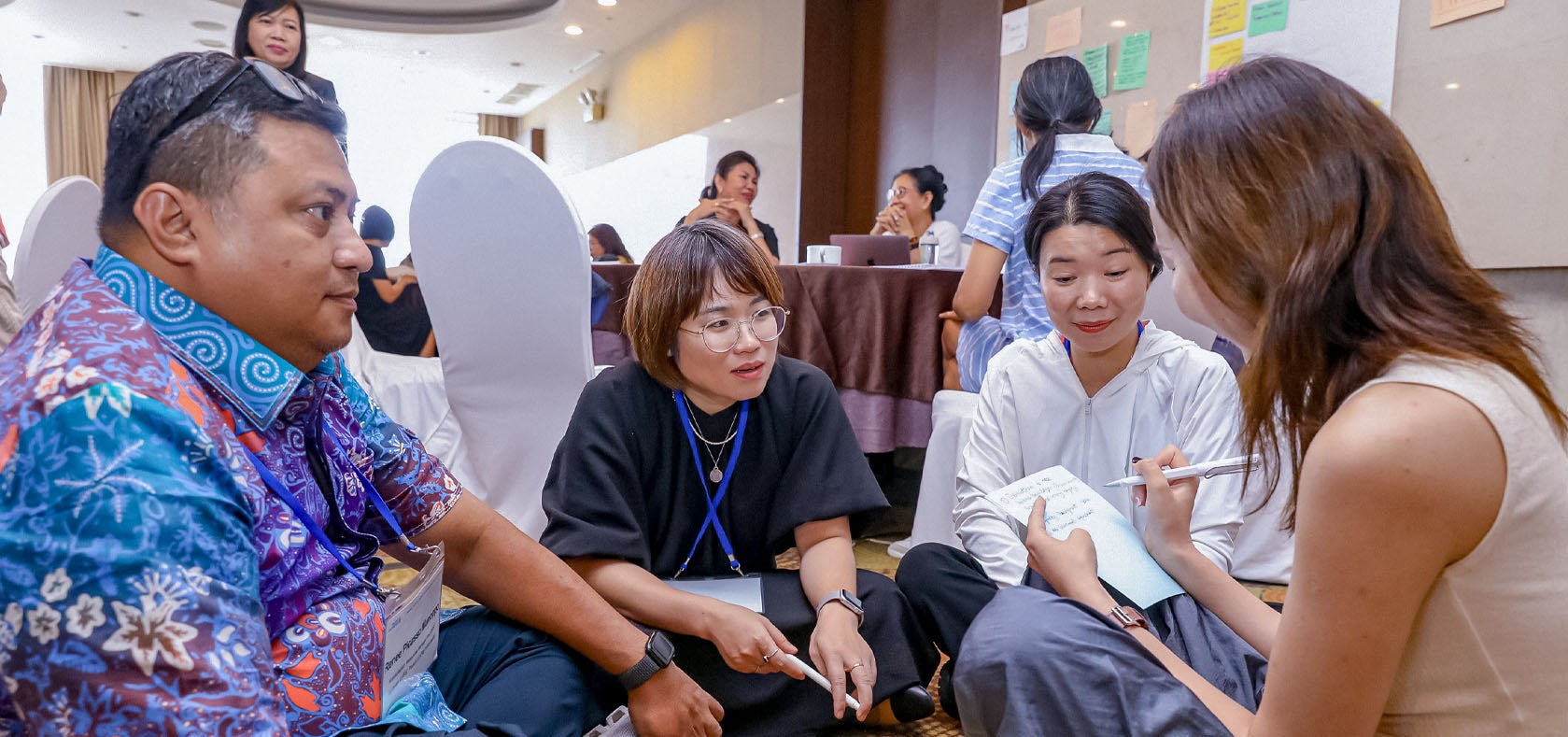
Maria Holtsberg, Regional Advisor, DRR and Climate for UN Women, speaks about DRR from a gender perspective. Photo: UN Women/Kwanju Kim
English | 한국어
Seoul, Republic of Korea — UN Women Centre of Excellence for Gender Equality, UN Women Regional Office for Asia and the Pacific and the Women’s Resilience to Disasters programme hosted a regional training workshop on advancing gender-transformative disaster risk reduction (DRR) in Seoul from 6 to 8 September.
The training programme was designed using materials and resources available on the Women’s Resilience to Disaster Knowledge Portal which is managed under the UN Women Disaster Risk Reduction Gender Equality Accelerator, the Women’s Resilience to Disaster (WRD) programme. The training gathered 44 representatives and experts from the governments and civil society organizations from 12 countries in Asia and the Pacific including Bangladesh, China, Fiji, Indonesia, Kiribati, Malaysia, Pakistan, the Philippines, the Republic of Korea, Solomon Islands, Thailand, and Viet Nam.
Gender transformative DRRis an approach that acknowledges and addresses the distinct needs, roles, capacities, and vulnerabilities of different genders in the context of disaster preparedness, response, and recovery. It goes beyond gender responsive DRR by actively challenging and changing underlying gender inequalities and norms to create lasting gender equality and inclusivity in disaster resilience efforts.
“Excellent policies exist in the Asia-Pacific region,” said Maria Holtsberg, Regional Advisor for Humanitarian Action, DRR and Climate for UN Women Regional Office for Asia and the Pacific, “But the challenge lies in the implementation at the community level.” The training created a safe space to exchange the lessons learned, challenges in mainstreaming gender into the development, implementation and monitoring of DRR policies and programmes at the country level.

Rahel Steinbach, Women’s Resilience to Disasters Global Programme lead, summarizes the group poster of ‘Priority 1: understanding risk’. Photo: UN Women/Kwanju Kim
“Women’s voice, agency and leadership is required for more inclusive, better informed and more effective disaster risk reduction,” said Rahel Steinbach, Women’s Resilience to Disasters Global Programme lead. The key findings from the participants’ discussion highlighted that shifting from gender-responsive to gender-transformative DRR required addressing the underlying factors and root causes. This can only be achieved with a coherent approach to mainstreaming gender transformative DRR into the Sustainable Development Goals (SDGs). It would require coherence and partnership among stakeholders who are accelerating progress in the SDGs.

Participants gathered in one table to discuss during the group activity. Photo: UN Women/Kwanju Kim
Workshop participants emphasized the significance of sex, age, and disability disaggregated data (SADDD) to advance gender analysis and the use of limited resources for critical tasks to ensure gender mainstreaming. The discussion also highlighted the challenge of collecting sex disaggregated data and conducting field visits and surveys due to budget constraints and the lack of available data, including secondary data sources. It was also noted that even when organisations collect data, they usually need help to effectively analyse gender issues. Lastly, participants stressed that organising women in the community and raising awareness among local communities can lead to an effective collection of SADDD.

Participants from diverse regions collaboratively draft the regional and national action plan for gender-responsive DRR. Photo: UN Women/Kwanju Kim
The training programme drew expertise from the participants to identify gender gaps along the priority work areas of the Sendai Framework for Disaster Risk Reduction. The participants discussed in groups to identify the priority actions on how their respective ministries/organisations can enhance gender mainstreaming towards gender transformative change in Disaster Risk Management in their policies and programmes.

Workshop participants engage in group activity. Photo: UN Women/Kwanju Kim

All participants assembled and listened to the group presentation. Photo: UN Women/Kwanju Kim
‘’The strategic preparations emerging from this training, both on a regional and country level, will make a distinct and valuable contribution to the ongoing dialogue around the prioritisation of gender considerations in disaster risk reduction. This will ultimately empower women, enhance their resilience, and enable them to play a more significant role in shaping a brighter future,” said Jeongshim Lee, Director of the UN Women Centre of Excellence for Gender Equality, during the closing of the training.





